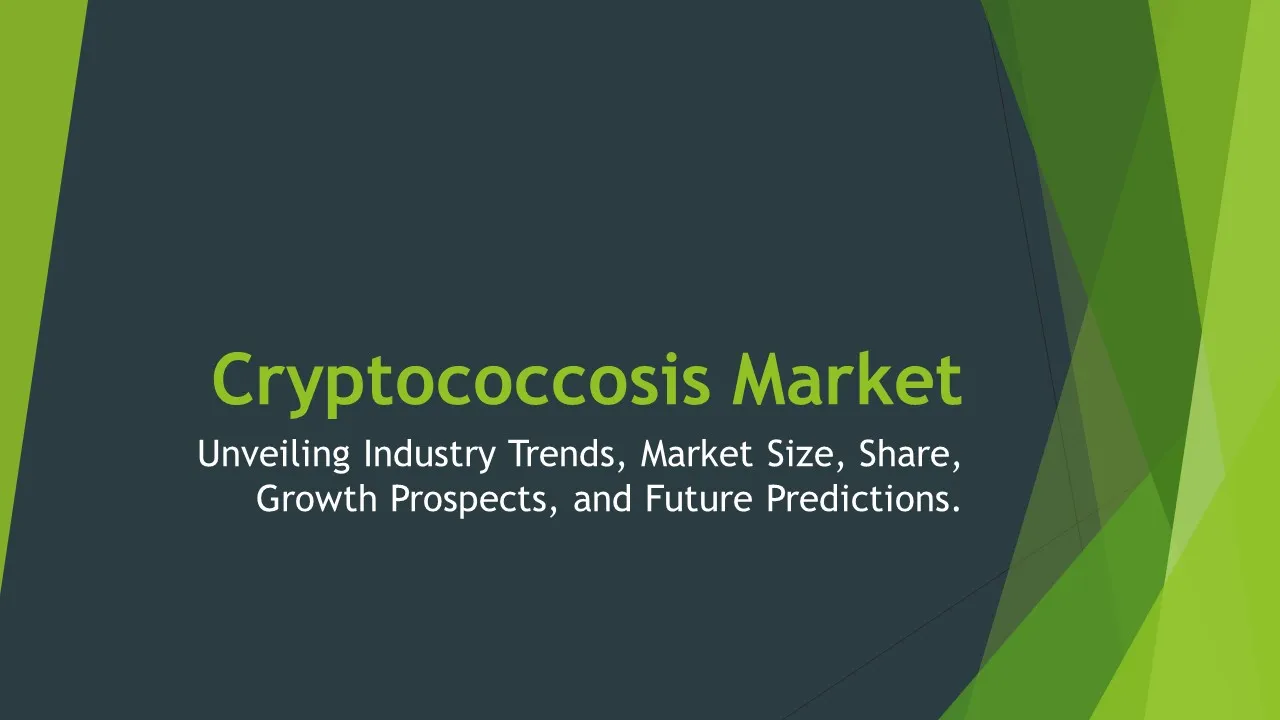Thymosin 1
Thymosin 1 Market Segments - by Product Type (Thymosin 1 Powder, Thymosin 1 Injectable), Application (Immunodeficiency Disorders, Infectious Diseases, Cancer, and Others), Distribution Channel (Hospitals, Retail Pharmacies, Online Pharmacies, and Others), Ingredient Type (Synthetic Thymosin 1, Natural Thymosin 1), and Region (North America, Europe, Asia Pacific, Latin America, Middle East & Africa) - Global Industry Analysis, Growth, Share, Size, Trends, and Forecast 2025-2035
- Report Preview
- Table Of Content
- Segments
- Methodology
Thymosin 1 Market Outlook
The global Thymosin 1 market is projected to reach approximately USD 1.3 billion by 2035, with a compound annual growth rate (CAGR) of around 7.5% during the forecast period from 2025 to 2035. This growth is primarily driven by the increasing prevalence of immunodeficiency disorders and infectious diseases, alongside a rising demand for innovative therapies in oncology. Moreover, the growing acknowledgment of Thymosin 1's potential as an immune modulator enhances its relevance in various therapeutic applications, leading to its increased utilization in clinical settings. Another significant factor contributing to market growth is the expansion of distribution channels, notably the proliferation of online pharmacies that facilitate easier access to Thymosin 1 products. Additionally, ongoing research and development activities aimed at exploring new applications of Thymosin 1 further bolster the market's growth potential.
Growth Factor of the Market
The Thymosin 1 market is experiencing considerable growth, primarily due to the rising incidence of immunodeficiency disorders, which necessitate effective therapeutic interventions. Increased awareness of Thymosin 1's therapeutic benefits, particularly in enhancing immune function, is driving demand among healthcare professionals and patients alike. Furthermore, advancements in medical research are unveiling new applications for Thymosin 1 across various diseases, including cancer, which significantly broadens its market potential. The growing trend towards personalized medicine is also influencing the market, with Thymosin 1 being tailored to meet the unique needs of individual patients. Additionally, the expansion of healthcare infrastructure, especially in emerging economies, is facilitating access to Thymosin 1 therapies, thereby contributing to market growth.
Key Highlights of the Market
- Projected market size of USD 1.3 billion by 2035 with a CAGR of 7.5%.
- Increased prevalence of immunodeficiency disorders and infectious diseases.
- Growing awareness and acceptance of Thymosin 1's therapeutic benefits.
- Expansion of distribution channels, particularly online pharmacies.
- Ongoing research unlocking new applications for Thymosin 1 in oncology.
By Product Type
Thymosin 1 Powder:
Thymosin 1 powder is a prominent product type in the market, known for its versatile use in various therapeutic applications. This form allows for easy formulation and manipulation, making it suitable for research and clinical trials. The powder can be reconstituted for injectable forms, thereby providing flexibility in dosing and administration. Its stability and ease of storage further enhance its appeal to manufacturers and healthcare providers. The rise in research activities surrounding Thymosin 1 powder indicates its importance in developing new treatment protocols. Additionally, it is often preferred in lab settings for its purity and consistency, contributing to its growing market share.
Thymosin 1 Injectable:
Thymosin 1 injectable formulations have gained significant traction in the market due to their direct delivery mechanism and quick onset of action. These products are especially beneficial in critical care settings, where rapid immune modulation is essential. The injectables are often used for patients with severe immunodeficiency or those undergoing cancer treatments to enhance their immune response. The convenience of administration via injections also supports adherence to treatment regimens, making them a favored choice among healthcare professionals. Furthermore, advancements in injectable formulations, such as sustained-release variants, continue to drive the growth of this segment as they promise improved patient outcomes.
By Application
Immunodeficiency Disorders:
Immunodeficiency disorders represent a significant application segment for Thymosin 1, as the peptide plays a crucial role in enhancing immune function. Patients suffering from these disorders often have compromised immune systems, making them susceptible to infections and other complications. Thymosin 1 has shown promising results in clinical studies, improving immune responses and reducing infection rates among these patients. The increasing awareness of Thymosin 1's capabilities in revitalizing immune function is leading to its growing use in therapeutic protocols targeting immunodeficiency disorders. As the prevalence of such disorders continues to rise globally, the demand for Thymosin 1 therapies in this segment is expected to increase substantially.
Infectious Diseases:
Thymosin 1 is also being explored for its applications in treating infectious diseases, highlighting its potential as an adjunct therapy in infectious disease management. The peptide's immunomodulatory properties enable it to enhance the body's immune response to various pathogens, thereby improving patient outcomes. In recent years, research has indicated that Thymosin 1 can be beneficial in treating viral infections, making it a vital component in the fight against pandemics and outbreaks. As healthcare systems worldwide seek effective treatments for infectious diseases, the application of Thymosin 1 is anticipated to grow, driven by increasing collaboration between research institutions and pharmaceutical companies.
Cancer:
In oncology, Thymosin 1 is gaining attention for its ability to modulate immune responses and improve the efficacy of cancer treatments. Research has suggested that Thymosin 1 can enhance the activity of immune cells, thereby enabling the body to better combat tumor growth and metastasis. The incorporation of Thymosin 1 in cancer treatment protocols holds promise for improving patient responses to therapies such as chemotherapy and immunotherapy. As the global cancer burden continues to rise, the demand for innovative treatments like Thymosin 1 is expected to surge, positioning this application segment for significant growth in the market.
Others:
This segment includes various niche applications of Thymosin 1 beyond the major areas of immunodeficiency disorders, infectious diseases, and cancer. Research is ongoing to explore Thymosin 1's potential in treating autoimmune diseases and age-related immune decline. The versatility of Thymosin 1 allows for its adaptation in multiple therapeutic settings, fostering interest from researchers and pharmaceutical companies. As the demand for personalized and targeted therapies increases, new applications for Thymosin 1 are likely to emerge, thereby contributing to the overall market growth.
By Distribution Channel
Hospitals:
Hospitals are a primary distribution channel for Thymosin 1, given their crucial role in providing critical care and specialized treatments. In this environment, healthcare professionals utilize Thymosin 1 in various therapeutic regimens, especially for patients with severe immunodeficiency or those undergoing complex cancer treatments. Hospitals often have robust procurement systems in place, allowing for timely access to Thymosin 1 products. Furthermore, the presence of specialized medical teams facilitates the effective administration of this peptide, ensuring optimal patient outcomes. The increasing number of hospitals equipped with advanced medical technology is expected to drive growth in this distribution channel.
Retail Pharmacies:
Retail pharmacies are becoming an increasingly important distribution channel for Thymosin 1, as they provide accessible points of purchase for patients and healthcare providers. The growing trend of self-medication and patient empowerment in managing health conditions is driving demand for Thymosin 1 products at retail outlets. Pharmacies are also establishing partnerships with healthcare professionals to promote Thymosin 1 among patients with specific medical needs. The convenience and accessibility of retail pharmacies contribute to a growing customer base, further bolstering market expansion. As more pharmacies invest in stock management and staff training regarding Thymosin 1, this distribution channel is poised for notable growth.
Online Pharmacies:
Online pharmacies have revolutionized the distribution landscape for Thymosin 1, offering unprecedented convenience for consumers seeking to purchase this product. The rise of e-commerce has enabled patients and healthcare providers to access Thymosin 1 with just a few clicks, significantly enhancing patient adherence to treatment regimens. Online pharmacies often provide competitive pricing and home delivery options, appealing to a broader audience. The growing trend of telemedicine and virtual consultations further supports the demand for Thymosin 1 through online platforms. As the e-pharmacy segment continues to grow, it is likely to become a dominant distribution channel in the Thymosin 1 market.
Others:
This category encompasses various unconventional distribution channels that facilitate the availability of Thymosin 1 products. This may include specialty clinics, compounding pharmacies, or direct sales by manufacturers. Such channels focus on providing tailored products and services aimed at specific patient populations, enhancing their market reach. Growing awareness about Thymosin 1's therapeutic benefits among healthcare providers is expected to drive these alternative distribution channels. As the overall healthcare landscape evolves, the inclusion and acceptance of these channels will contribute to the diversification of Thymosin 1's distribution strategy.
By Ingredient Type
Synthetic Thymosin 1:
Synthetic Thymosin 1 is a prevalent ingredient type in the market, known for its consistency and reliability in therapeutic applications. The synthetic formulation allows for greater control over purity and dosage, essential factors in clinical settings where precise administration is vital. Many pharmaceutical companies favor synthetic Thymosin 1 due to its scalability in manufacturing, ensuring a steady supply to meet growing market demand. Additionally, the development of advanced synthetic methods has significantly reduced production costs, thereby enhancing competitiveness in pricing. Overall, the widespread acceptance and reliability of synthetic Thymosin 1 contribute to its dominance in the ingredient type segment.
Natural Thymosin 1:
Natural Thymosin 1, derived from biological sources, is gaining traction due to its perceived advantages in promoting a more holistic approach to healthcare. Many healthcare professionals and patients believe that natural formulations can offer better compatibility with biological systems, enhancing therapeutic outcomes. The growing trend towards natural and organic products in the healthcare sector is driving interest in natural Thymosin 1. As research continues to validate the efficacy of natural products, the demand for natural Thymosin 1 is expected to rise. However, challenges related to sourcing and consistency in natural formulations may impact the growth of this segment.
By Region
The North American region holds a substantial share of the Thymosin 1 market, accounting for approximately 40% of the global market value. The growing prevalence of immunodeficiency disorders and infectious diseases, along with strong healthcare infrastructure, contributes to the region's dominance. Furthermore, a significant presence of leading pharmaceutical companies and research institutions in North America facilitates ongoing research and development activities related to Thymosin 1, enhancing its adoption in therapeutic applications. Additionally, the increasing trend towards personalized medicine and innovative therapies fuels market growth in this region, with a projected CAGR of 8.0% over the forecast period.
In Europe, the Thymosin 1 market is also witnessing substantial growth, driven by rising healthcare expenditure and a growing emphasis on advanced treatment options. The European region accounts for approximately 30% of the global market share, with several countries, such as Germany and the UK, leading the way in research and innovation. The increasing prevalence of chronic diseases and an aging population further heighten the demand for Thymosin 1 therapies in this region. Emerging markets in Asia Pacific are also expected to contribute significantly to the overall growth of the Thymosin 1 market, as healthcare systems improve and more patients gain access to advanced therapies.
Opportunities
The Thymosin 1 market is poised for significant opportunities, particularly driven by advancements in biomedical research and the exploration of new therapeutic applications. As scientists uncover the various benefits of Thymosin 1, including its role in enhancing immune function and its potential to treat a broader range of diseases, pharmaceutical companies are likely to invest more in research and development. Innovations in drug delivery systems, such as nanotechnology and sustained-release formulations, present promising opportunities to improve the effectiveness of Thymosin 1 therapies. Moreover, collaborations between academic institutions and industry players can lead to the development of novel formulations that cater to specific patient needs, expanding the market reach of Thymosin 1.
Furthermore, the growing trend towards personalized medicine offers additional opportunities for the Thymosin 1 market. Tailoring therapies to individual patient profiles enhances treatment efficacy, and Thymosin 1 can play a vital role in these customized therapeutic regimens. The increasing emphasis on preventive healthcare and the management of chronic diseases also support the market's growth trajectory. Additionally, the expansion of online pharmacies and e-commerce platforms provides an avenue for greater accessibility and distribution of Thymosin 1 products, attracting a wider consumer base and facilitating adherence to treatment protocols.
Threats
Despite the promising growth outlook for the Thymosin 1 market, several threats could hinder its progress. One major concern is the stringent regulatory landscape surrounding peptide-based therapies, which can lead to delays in product approvals and increased costs for manufacturers. Compliance with regulatory standards requires extensive clinical trials and documentation, overwhelming smaller companies and potentially limiting innovation in the market. Moreover, the existence of alternative therapies and competing products may threaten the market share of Thymosin 1 if they demonstrate superior efficacy or cost-effectiveness. The ongoing global pandemic has also introduced uncertainties in supply chains and market dynamics, posing additional challenges for market players.
Furthermore, the perception of Thymosin 1 as a specialized treatment may lead to limited market penetration in certain regions, particularly in developing countries where access to advanced therapies is restricted. The lack of awareness among healthcare providers and patients regarding Thymosin 1's benefits may also pose a challenge in driving adoption. Additionally, the reliance on a few key suppliers for raw materials may create vulnerabilities in the supply chain, impacting product availability and pricing stability. As the market continues to evolve, addressing these threats will be critical for the sustained growth of the Thymosin 1 market.
Competitor Outlook
- Amgen Inc.
- Bristol-Myers Squibb Company
- Eli Lilly and Company
- Novartis AG
- Pfizer Inc.
- Teva Pharmaceutical Industries Ltd.
- GSK (GlaxoSmithKline) PLC
- Roche Holding AG
- Merck & Co., Inc.
- Abcam plc
- YM BioSciences Inc.
- Viventia Biotech Inc.
- Acambis plc
- Haplogen Inc.
- AstraZeneca PLC
The Thymosin 1 market is characterized by a competitive landscape featuring several well-established pharmaceutical companies and biotechnology firms. Major players such as Amgen Inc. and Bristol-Myers Squibb Company are at the forefront of research and development activities surrounding Thymosin 1, leveraging their extensive resources to explore innovative applications and formulations. These companies have significant investments in immunotherapy, which aligns with the therapeutic potential of Thymosin 1. Additionally, strategic partnerships and collaborations with research institutions and smaller biotech firms allow these major players to accelerate the development of Thymosin 1 therapies, enhancing their market positioning.
Furthermore, companies like Eli Lilly and Company and Novartis AG are actively involved in advancing clinical research focused on Thymosin 1, reflecting their commitment to providing innovative treatment solutions. Their global presence and strong distribution networks facilitate the widespread availability of Thymosin 1 products, making them key contributors to market growth. Additionally, the focus on personalized medicine and targeted therapies in the product development strategies of these businesses further emphasizes their investment in Thymosin 1's potential applications across various therapeutic areas.
As the competitive environment continues to evolve, companies such as Pfizer Inc. and Teva Pharmaceutical Industries Ltd. are likely to adopt aggressive marketing and pricing strategies to capture greater market share. The emergence of niche players, such as Abcam plc and Viventia Biotech Inc., demonstrates the growing interest in Thymosin 1 research and development. These companies often focus on specialized formulations and applications of Thymosin 1, carving out unique market opportunities. Overall, the competitive landscape in the Thymosin 1 market is dynamic, with ongoing innovation and collaboration paving the way for future growth prospects.
1 Appendix
- 1.1 List of Tables
- 1.2 List of Figures
2 Introduction
- 2.1 Market Definition
- 2.2 Scope of the Report
- 2.3 Study Assumptions
- 2.4 Base Currency & Forecast Periods
3 Market Dynamics
- 3.1 Market Growth Factors
- 3.2 Economic & Global Events
- 3.3 Innovation Trends
- 3.4 Supply Chain Analysis
4 Consumer Behavior
- 4.1 Market Trends
- 4.2 Pricing Analysis
- 4.3 Buyer Insights
5 Key Player Profiles
- 5.1 Abcam plc
- 5.1.1 Business Overview
- 5.1.2 Products & Services
- 5.1.3 Financials
- 5.1.4 Recent Developments
- 5.1.5 SWOT Analysis
- 5.2 Amgen Inc.
- 5.2.1 Business Overview
- 5.2.2 Products & Services
- 5.2.3 Financials
- 5.2.4 Recent Developments
- 5.2.5 SWOT Analysis
- 5.3 Acambis plc
- 5.3.1 Business Overview
- 5.3.2 Products & Services
- 5.3.3 Financials
- 5.3.4 Recent Developments
- 5.3.5 SWOT Analysis
- 5.4 Novartis AG
- 5.4.1 Business Overview
- 5.4.2 Products & Services
- 5.4.3 Financials
- 5.4.4 Recent Developments
- 5.4.5 SWOT Analysis
- 5.5 Pfizer Inc.
- 5.5.1 Business Overview
- 5.5.2 Products & Services
- 5.5.3 Financials
- 5.5.4 Recent Developments
- 5.5.5 SWOT Analysis
- 5.6 Haplogen Inc.
- 5.6.1 Business Overview
- 5.6.2 Products & Services
- 5.6.3 Financials
- 5.6.4 Recent Developments
- 5.6.5 SWOT Analysis
- 5.7 AstraZeneca PLC
- 5.7.1 Business Overview
- 5.7.2 Products & Services
- 5.7.3 Financials
- 5.7.4 Recent Developments
- 5.7.5 SWOT Analysis
- 5.8 Roche Holding AG
- 5.8.1 Business Overview
- 5.8.2 Products & Services
- 5.8.3 Financials
- 5.8.4 Recent Developments
- 5.8.5 SWOT Analysis
- 5.9 Merck & Co., Inc.
- 5.9.1 Business Overview
- 5.9.2 Products & Services
- 5.9.3 Financials
- 5.9.4 Recent Developments
- 5.9.5 SWOT Analysis
- 5.10 YM BioSciences Inc.
- 5.10.1 Business Overview
- 5.10.2 Products & Services
- 5.10.3 Financials
- 5.10.4 Recent Developments
- 5.10.5 SWOT Analysis
- 5.11 Eli Lilly and Company
- 5.11.1 Business Overview
- 5.11.2 Products & Services
- 5.11.3 Financials
- 5.11.4 Recent Developments
- 5.11.5 SWOT Analysis
- 5.12 Viventia Biotech Inc.
- 5.12.1 Business Overview
- 5.12.2 Products & Services
- 5.12.3 Financials
- 5.12.4 Recent Developments
- 5.12.5 SWOT Analysis
- 5.13 GSK (GlaxoSmithKline) PLC
- 5.13.1 Business Overview
- 5.13.2 Products & Services
- 5.13.3 Financials
- 5.13.4 Recent Developments
- 5.13.5 SWOT Analysis
- 5.14 Bristol-Myers Squibb Company
- 5.14.1 Business Overview
- 5.14.2 Products & Services
- 5.14.3 Financials
- 5.14.4 Recent Developments
- 5.14.5 SWOT Analysis
- 5.15 Teva Pharmaceutical Industries Ltd.
- 5.15.1 Business Overview
- 5.15.2 Products & Services
- 5.15.3 Financials
- 5.15.4 Recent Developments
- 5.15.5 SWOT Analysis
- 5.1 Abcam plc
6 Market Segmentation
- 6.1 Thymosin 1 Market, By Application
- 6.1.1 Immunodeficiency Disorders
- 6.1.2 Infectious Diseases
- 6.1.3 Cancer
- 6.1.4 Others
- 6.2 Thymosin 1 Market, By Product Type
- 6.2.1 Thymosin 1 Powder
- 6.2.2 Thymosin 1 Injectable
- 6.3 Thymosin 1 Market, By Ingredient Type
- 6.3.1 Synthetic Thymosin 1
- 6.3.2 Natural Thymosin 1
- 6.4 Thymosin 1 Market, By Distribution Channel
- 6.4.1 Hospitals
- 6.4.2 Retail Pharmacies
- 6.4.3 Online Pharmacies
- 6.4.4 Others
- 6.1 Thymosin 1 Market, By Application
7 Competitive Analysis
- 7.1 Key Player Comparison
- 7.2 Market Share Analysis
- 7.3 Investment Trends
- 7.4 SWOT Analysis
8 Research Methodology
- 8.1 Analysis Design
- 8.2 Research Phases
- 8.3 Study Timeline
9 Future Market Outlook
- 9.1 Growth Forecast
- 9.2 Market Evolution
10 Geographical Overview
- 10.1 Europe - Market Analysis
- 10.1.1 By Country
- 10.1.1.1 UK
- 10.1.1.2 France
- 10.1.1.3 Germany
- 10.1.1.4 Spain
- 10.1.1.5 Italy
- 10.1.1 By Country
- 10.2 Thymosin 1 Market by Region
- 10.3 Asia Pacific - Market Analysis
- 10.3.1 By Country
- 10.3.1.1 India
- 10.3.1.2 China
- 10.3.1.3 Japan
- 10.3.1.4 South Korea
- 10.3.1 By Country
- 10.4 Latin America - Market Analysis
- 10.4.1 By Country
- 10.4.1.1 Brazil
- 10.4.1.2 Argentina
- 10.4.1.3 Mexico
- 10.4.1 By Country
- 10.5 North America - Market Analysis
- 10.5.1 By Country
- 10.5.1.1 USA
- 10.5.1.2 Canada
- 10.5.1 By Country
- 10.6 Middle East & Africa - Market Analysis
- 10.6.1 By Country
- 10.6.1.1 Middle East
- 10.6.1.2 Africa
- 10.6.1 By Country
- 10.1 Europe - Market Analysis
11 Global Economic Factors
- 11.1 Inflation Impact
- 11.2 Trade Policies
12 Technology & Innovation
- 12.1 Emerging Technologies
- 12.2 AI & Digital Trends
- 12.3 Patent Research
13 Investment & Market Growth
- 13.1 Funding Trends
- 13.2 Future Market Projections
14 Market Overview & Key Insights
- 14.1 Executive Summary
- 14.2 Key Trends
- 14.3 Market Challenges
- 14.4 Regulatory Landscape
Segments Analyzed in the Report
The global Thymosin 1 market is categorized based on
By Product Type
- Thymosin 1 Powder
- Thymosin 1 Injectable
By Application
- Immunodeficiency Disorders
- Infectious Diseases
- Cancer
- Others
By Distribution Channel
- Hospitals
- Retail Pharmacies
- Online Pharmacies
- Others
By Ingredient Type
- Synthetic Thymosin 1
- Natural Thymosin 1
By Region
- North America
- Europe
- Asia Pacific
- Latin America
- Middle East & Africa
Key Players
- Amgen Inc.
- Bristol-Myers Squibb Company
- Eli Lilly and Company
- Novartis AG
- Pfizer Inc.
- Teva Pharmaceutical Industries Ltd.
- GSK (GlaxoSmithKline) PLC
- Roche Holding AG
- Merck & Co., Inc.
- Abcam plc
- YM BioSciences Inc.
- Viventia Biotech Inc.
- Acambis plc
- Haplogen Inc.
- AstraZeneca PLC
- Publish Date : Jan 21 ,2025
- Report ID : PH-65853
- No. Of Pages : 100
- Format : |
- Ratings : 4.5 (110 Reviews)
Related reports









